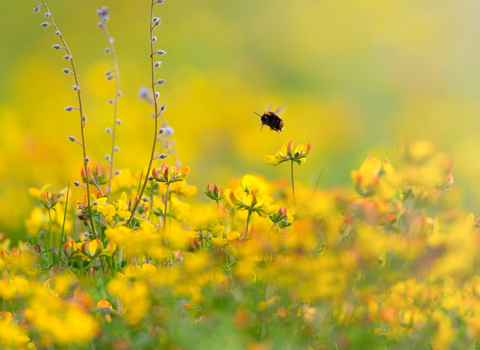The Secretary of State, George Eustice, made the decision in response to the potential danger posed from beet yellows virus, despite a similar application being refused in 2018 by the UK Expert Committee on Pesticides because of unacceptable environmental risks.
In 2017, the UK Government supported restrictions on the neonicotinoid pesticides across the European Union due to the very clear harm that they were causing to bees and other wildlife. The then Environment Secretary, Michael Gove, promised that the Government would maintain these restrictions unless the scientific evidence changed. The evidence has not changed – indeed, the devastating impact this group of pesticides is having on our wildlife has increased, and hardly a month goes by without yet more evidence of the wider ecological crisis. Academic and author, Professor Dave Goulson, has warned that one teaspoon of neonic is enough to kill 1.25 billion honeybees, equivalent to four lorryloads.
The Government has stated that authorised applications will have strict conditions to ensure that wildlife is not harmed, but this assertion does not stand up to scrutiny. The authorisation allows “seed-dressing” of sugar beet crops with neonicotinoid pesticides, a method of application that results in only 5% of the pesticide going where it is targeted, in the crop. The rest ends up accumulating in the soil, from where it can be absorbed by the roots of wildflowers and hedgerow plants, or can leach into rivers and streams where it could harm over 3,800 invertebrate species, which spend at least part of their life cycle in freshwater.
The authorisation also proposes adding weed killer to sugar beet fields to 'protect' bees by killing wildflowers that grow alongside the sugar beet - because beneficial 'weeds' will have absorbed neonicotinoids (neonics) through the contaminated soil. Doing so would seriously harm already-threatened populations of wildflowers and the insects that depend on them.
Joan Edwards, Director of Public Affairs at The Wildlife Trusts says:
“The Government has bowed to pressure from the National Farmers Union even though, three years ago, the UK Government supported restrictions on the neonicotinoid pesticides across the European Union, because of the very clear harm that they were causing to bees and other pollinators. We will be writing to the Prime Minister requesting that he reverses the Secretary of State’s decision and focus support for farmers to adopt non-chemical alternatives so that so that agriculture supports nature and does not destroy it.
“Insect populations have suffered drastic declines in the UK – and these are set to have far-reaching consequences for both wildlife and people. Recent evidence suggests we have lost 50% or more of our insects since 1970, and 41% of the Earth's remaining five million insect species are now 'threatened with extinction'. Insects are food for numerous larger animals including birds, bats, reptiles, amphibians and fish, and they perform vital roles for people too – such as pollination of crops and wildflowers, pest control and nutrient recycling.

